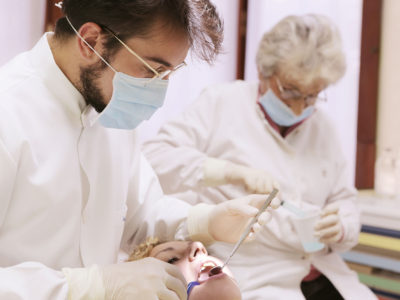What Is Oral Surgery

Oral surgery is a type of dentistry that treats a variety of issues and diseases inside of the mouth, ranging from tooth extractions to corrective jaw surgery. While the name may sound intimidating, you’ll be surprised to learn that many procedures performed in a general dental office are considered oral surgery.
Types Of Oral Surgery
Tooth Extractions
Tooth extractions are the most recognized form of oral surgery, and the reasons can include
- Partially erupted or impacted wisdom teeth
- Teeth beyond repair, either from trauma, decay, or fracture
- Primary teeth that have failed to fall out and prevent the eruption of wisdom teeth
- Removal of teeth to prevent overcrowding
Corrective Jaw Surgery
There are a number of surgeries that an oral surgeon can perform on the jaw as well, ranging from cosmetic to necessary.
- Temporomandibular joint pain (TMJ)
- Jaw dysfunction caused by trauma or deformation
- Incorrect bit or malocclusion
- Clenching or grinding of the teeth
- Incorrect jaw position and bite
Dental Implants
Dental implants are another common cause of oral surgery. Dental implants are metal posts that are surgically inserted into the jaw bone where a tooth was once present. A replacement tooth resides atop the implant, giving the appearance of a natural smile and bite. Dental implants are a long-term solution to missing teeth and are healthier and more comfortable for the patient than their traditional counterpart, dentures.
Detection And Treatment Of Diseases
Dentists are now trained to detect oral cancer, which is a devastating disease that almost always goes unnoticed and is not easily detected. If dentists uncover something suspicious, they will usually order a biopsy, which removed a small piece of tissue from the affected area to be tested for disease.
Recovery After Oral Surgery
Recovery is crucial regardless of the type of oral surgery you need, but most patients are back on their feet and living a normal life in no time at all. If swelling is present around the surgery site, it has usually subsided 24-48 hours post-operation, but of course, not all patients experience swelling. Your oral surgeon will tell you exactly what you need to do post-operation to maintain your dental health.
Dentists will usually advise patients to stick to a soft food diet immediately following surgery, but patients may eat whatever they are comfortable.
Learn More
Contact us at Dansville Dental Professionals to learn more about oral surgery.

